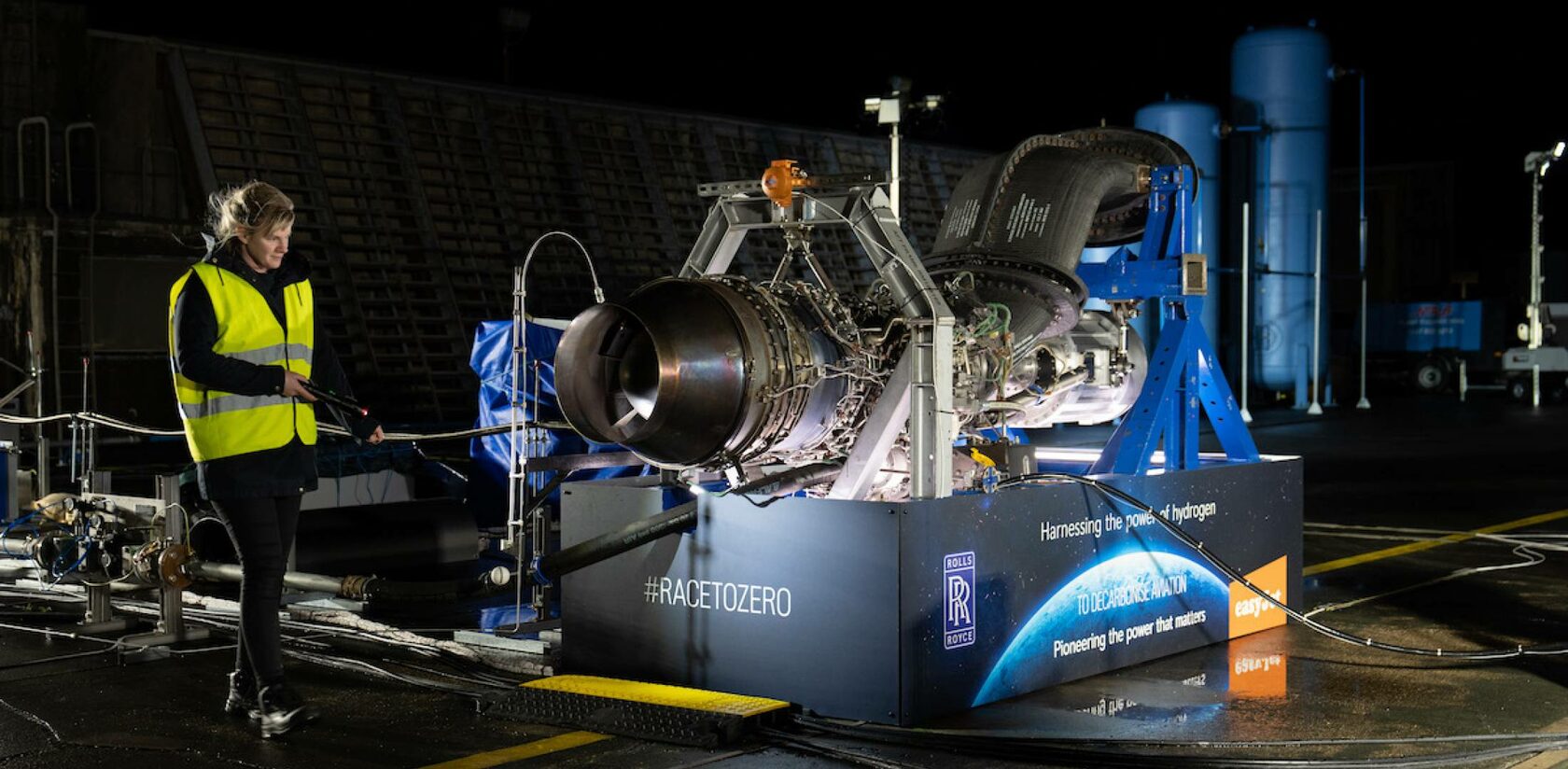Electric vehicles are becoming more popular every day. However, the limits of this technology have not yet been overcome. For example, only land vehicles today use electricity. However, the search for environmental solutions in this sector continues. Rolls-Royce and easyJet today confirmed that they have set a new milestone in aviation by launching a modern hydrogen-powered aircraft engine for the first time in the world, Cyberstate reports.
Ground tests were carried out on the first demonstrator using green hydrogen generated by wind and tidal energy. This marks an important step towards proving that hydrogen can be a carbon-neutral aviation fuel of the future, and is a key piece of evidence in both Rolls-Royce and easyJet's decarbonization strategies.
Both companies have set themselves the challenge of proving that hydrogen can safely and efficiently power civilian aircraft engines, and are already planning a second series of tests with a longer-term goal of flight testing. The tests were carried out at the Department of Defense outdoor test site Boscombe Down, UK, using a converted Rolls-Royce AE 2100-A regional aircraft engine. The green hydrogen for the test was provided by EMEC (European Marine Energy Center) produced using renewable energy sources at their hydrogen production and tidal test facility at Edea in Orkney, UK.
Secretary of State for Business, Energy and Industrial Strategy Grant Shapps said: “The UK is leading the global transition to guilt-free flying and today's test by Rolls-Royce and easyJet is an exciting demonstration of how business innovation can transform our lives. “This is a true British success story: the hydrogen used to power jet engines today is produced using tidal and wind power in the Orkney Islands in Scotland and is a prime example of how we can work together to make aviation cleaner.”
Grazia Vittadini, Chief Technology Officer of Rolls-Royce, said: “The success of this hydrogen test is an exciting milestone. We only announced our partnership with easyJet in July and we are already off to an incredible start with this milestone achievement. We are pushing the boundaries to unlock the possibilities of zero-carbon hydrogen, which could help change the future of flight.”
Johan Lundgren, CEO of easyJet, said: “This is a real success for our partner team. We are committed to continuing to support this groundbreaking research because hydrogen offers great opportunities for a range of aircraft, including aircraft the size of easyJet. This will be a huge step forward towards achieving zero emissions by 2050.”
After reviewing this early concept ground test, the partnership is planning a series of further bench tests leading up to full-scale ground tests of the Rolls-Royce Pearl 15 jet engine. The partnership is inspired by the UN-supported global Race to Zero campaign that both companies have joined to take on the goal of reaching zero carbon emissions. by 2050.
Ground tests were carried out on the first demonstrator using green hydrogen generated by wind and tidal energy. This marks an important step towards proving that hydrogen can be a carbon-neutral aviation fuel of the future, and is a key piece of evidence in both Rolls-Royce and easyJet's decarbonization strategies.
Both companies have set themselves the challenge of proving that hydrogen can safely and efficiently power civilian aircraft engines, and are already planning a second series of tests with a longer-term goal of flight testing. The tests were carried out at the Department of Defense outdoor test site Boscombe Down, UK, using a converted Rolls-Royce AE 2100-A regional aircraft engine. The green hydrogen for the test was provided by EMEC (European Marine Energy Center) produced using renewable energy sources at their hydrogen production and tidal test facility at Edea in Orkney, UK.
Secretary of State for Business, Energy and Industrial Strategy Grant Shapps said: “The UK is leading the global transition to guilt-free flying and today's test by Rolls-Royce and easyJet is an exciting demonstration of how business innovation can transform our lives. “This is a true British success story: the hydrogen used to power jet engines today is produced using tidal and wind power in the Orkney Islands in Scotland and is a prime example of how we can work together to make aviation cleaner.”
Grazia Vittadini, Chief Technology Officer of Rolls-Royce, said: “The success of this hydrogen test is an exciting milestone. We only announced our partnership with easyJet in July and we are already off to an incredible start with this milestone achievement. We are pushing the boundaries to unlock the possibilities of zero-carbon hydrogen, which could help change the future of flight.”
Johan Lundgren, CEO of easyJet, said: “This is a real success for our partner team. We are committed to continuing to support this groundbreaking research because hydrogen offers great opportunities for a range of aircraft, including aircraft the size of easyJet. This will be a huge step forward towards achieving zero emissions by 2050.”
After reviewing this early concept ground test, the partnership is planning a series of further bench tests leading up to full-scale ground tests of the Rolls-Royce Pearl 15 jet engine. The partnership is inspired by the UN-supported global Race to Zero campaign that both companies have joined to take on the goal of reaching zero carbon emissions. by 2050.
